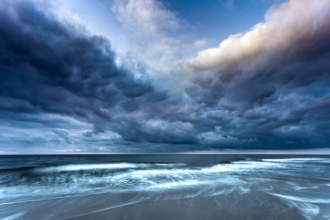What Happened During the Last Crossing Incident?
Early Sunday morning in the English Channel, a terrible maritime accident happened that claimed eight lives as eight individuals were crossing from France to England. The event happened in the northern Pas-de-Calais area, in seas north of Boulogne-sur-Mer. Following distress calls regarding a boat carrying around 60 people, French rescue authorities were notified at about 01:00 local time (00:00 BST). Severe problems beset the inflatable vessel, which was forced onto rocks close to the coastal village of Ambleteuse, where it split apart. Arriving rapidly on the site, emergency workers could treat 53 survivors on the beach. Six of them—including a newborn suffering from hypothermia—were taken to a hospital. Sadly, the search for survivors turned out empty even though it carried on at sea.
How Has the Death Toll From Crossings in the Channel Risen?
This sad incident accentuates an alarming trend of fatal Channel crossings. Less than two weeks earlier, a similar tragedy claimed the lives of twelve people, six of them youngsters and one pregnant lady. The UN’s International Organisation for Migration reports that the death toll in the Channel for 2024 currently stands at 45, the most since 2021. The number of individuals risking their lives on one of the most difficult migratory paths shows a concerning rise this year.
What Were the Recent Crossing Statistics?
Thanks in great part to good weather, French maritime officials have noted a spike in attempted crossings recently. With 801 persons crossing the Channel overall on Saturday, it was the second-highest day count for this year. Responding to several events during 24 hours on Friday and Saturday, French coast guard and rescue crews saved 200 people from four different vessels. The boats ranged in capacity; one carried 61 passengers, another 55, and two others with 48 and 36 apiece. This rise in attempted crossings emphasizes the continuous and worsening character of the situation.
What Actions Are Being Taken in Response to the Tragedy?
The public prosecutor’s office of Boulogne-sur-Mer has started looking into the most recent catastrophe. Following the event, a UK government official verified that French officials were spearheading the inquiry and reaction initiatives. Over the death toll, Foreign Secretary David Lammy expressed great grief, characterizing the circumstances as “awful” and underlining the great risks involved in the path taken by people trying the hazardous trip. Lammy underlined that “it is heartbreaking to see further loss of life in such perilous conditions” and pointed out that the kinds of rubber dinghies being utilized further highlight the dangerous character of these crossings. He underlined once more the UK government’s will to work with European allies to stop the illegal people smugglers behind these dangerous travels.
What Are the Calls for Solutions to Prevent Further Tragedies?
Declared “yet another terrible and avoidable tragedy,” the most recent occurrence has been denounced by Amnesty International UK as asking for immediate and all-encompassing responses to handle the problem. Emphasizing the need for a comprehensive strategy to lower the number of crossings, Enver Solomon, CEO of the Refugee Council, has underlined that these fatalities are not “inevitable” Solomon said that “enforcement alone is not the solution” and underlined the need for better access to safe refugee routes as a fundamental element in properly addressing the migratory problem. The continuous and sad occurrences highlight the need for both quick and long-term plans to stop more deaths in one of the most dangerous migration paths worldwide.
The most recent tragedy emphasizes the critical necessity of thorough remedies to solve the fundamental reasons for the migratory issue and stop further death. At the same time, investigations continue, and emergency reactions develop.
Emergency Doctors Warn of Water Beads Dangers This Christmas








